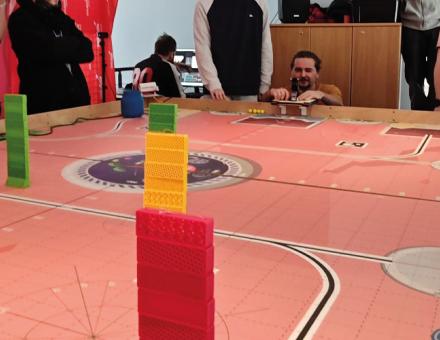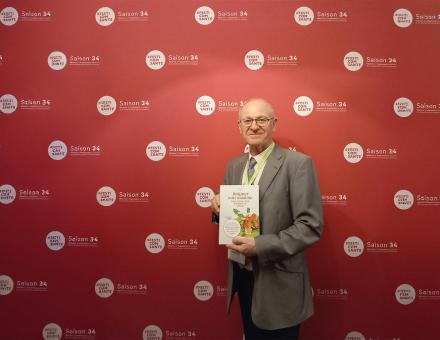At a time when our electronic devices are becoming obsolete as quickly as they are acquired, the question of what happens to them once they are no longer in use is becoming crucial.
Telephones, tablets, laptops: these small devices, omnipresent in our daily lives, still too often escape collection and recycling channels. In view of this, the European Commission has drawn up an ambitious roadmap to encourage a circular economy and reduce our ecological footprint.
The Erasmus+ OSCAR project, launched in August 2024 and led by UniLaSalle in collaboration with four European partners, E-School (Greece), Deses 3 (Spain), MECb (Malta) and SEI (Estonia), is part of this dynamic.
This Erasmus+ project aims to develop a new digital training center through which educators and teachers will be able to use a range of training resources to motivate young people to adopt sustainable behaviors and make informed choices regarding the disposal and consumption of electrical and electronic equipment (EEE).
An identified need for resources
Initially, the teams from the five establishments involved in the Erasmus+ OSCAR project collected testimonies from teachers and their expectations regarding education on the treatment of electronic waste. These opinions were then summarized in order to identify common points across all the territories studied.
While most educators approve of the idea of educating the younger generation about recycling electrical and electronic waste – young people are actually quite keen on the idea – many of them deplore the absence of such teaching in the curriculum and a lack of available teaching resources. This is an issue that can be addressed in the third phase of the OSCAR project, which will run until January 2027.
Following the example of their European partners, Benjamin Cordrie, Associate Professor of Economics at the Environment College, and Victor Bayard, Research Fellow in the Cyclann team, are now working on the construction of course models and “turnkey” content that teachers will be able to use via an Erasmus+ online platform. The tools are intended to be operational and can be adapted to all types of audiences.
A project piloted by UniLaSalle and conducted on a European scale
The Erasmus+ OSCAR project is co-piloted by UniLaSalle Rennes and by the UniLaSalle International Relations Department. The study and production of educational content is the responsibility of the program's 5 partner institutions, confirming the European dimension of the project. The surveys were therefore conducted in France, Greece, Malta, Spain and Estonia.
Other UniLaSalle departments are expected to gradually join the existing team to contribute their expertise:
- The Department of Pedagogical Innovation in Education
- The Sustainable Development Department for raising awareness of sustainable development.
About the Oscar project
Name of the program: Fostering YOuth Behavioral Change Towards Sustainable Choices Concerning WAste of ElectRonic Devices
Acronym: OSCAR
Erasmus+ project number: 2023-2-FR02-KA220-YOU-000178430
Period: August 1st, 2024 - January 31, 2027
Partners:
- UniLaSalle, project leader
- E-School Educational Group, Greece
- Macdac Engineering Consultancy Bureau LTD, Malta
- Asociacion DESES 3, Spain
- Sihtasutus Stockholmi Keskkonnainst Ituudi Tallinna Keskus, Estonia.

Co-funded by the European Union. The views and opinions expressed are those of the author(s) and do not necessarily reflect those of the European Union or the European Education and Culture Executive Agency (EACEA). Neither the European Union nor the EACEA can be held responsible for them.






